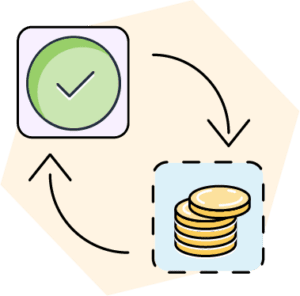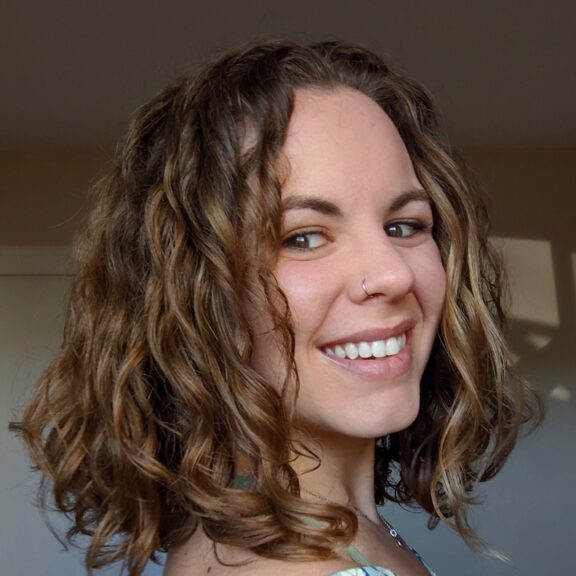Working for yourself brings plenty of perks, but employer-sponsored life insurance is not one of them. Full-time employees usually receive low-cost or free life insurance through their companies. However, business owners, freelancers, gig workers, and other self-employed individuals must shop for and select their own life insurance policies.
Life insurance provides a financial safety net for your loved ones if you pass away. Even if you are in good health or do not have dependents, having a life insurance policy is critical, as your death benefit can help pay for funeral arrangements and other expenses.
Fortunately, you do not need an employer subsidy to find high-quality, cost-efficient life insurance.
Table of Contents
Challenges Facing the Self-Employed
If you’re self-employed, you’re responsible for finding and paying out of pocket for your life insurance policy. Various factors can complicate selecting a life insurance plan for a self-employed individual.
For example, your income might vary depending on seasonal fluctuations, client roster, industry, and other factors. With inconsistent or unpredictable paychecks, creating a monthly insurance budget can be challenging.
Business owners often encounter additional complexities when assessing their life insurance needs. Making the choice of a life insurance policy in more crucial, as it may significantly influence the future of their business in the event of their passing
Factors Affecting Policy Decisions
Before you decide on a life insurance provider and plan, you must consider your earnings, health needs, and loved ones. Ask yourself about the following factors.
Variable Income and Budget Considerations

Is your income relatively consistent and reliable, or does it vary throughout the year? You should only consider policies you’re confident you can afford from one month to the next. Otherwise, your premium may become difficult to maintain during slower work periods.
In many cases, purchasing a smaller life insurance policy with a lower premium may be more sustainable. However, life insurance is a long-term investment, so you should aim for the plan that gets you the most bang for your buck.
Many policies offer premiums that can be paid on a quarterly, semiannually, or annual basis. Paying premiums monthly leads to an overall higher annual cost. Paying less frequently may align better with your cash flow and save you money.
Health and Pre-Existing Conditions
Are you living with any health challenges that might impact your choice of life insurance? Providers consider some conditions to be high-risk, including the following:
- Heart disease
- Kidney disease
- Cancer
- Stroke
- Dementia
- HIV/AIDS
- Tobacco use
If you have a high-risk health condition, you can expect to pay a higher life insurance premium. But you can also seek out an insurer who specializes in high-risk clients and can find you a reliable policy at an affordable price.
Family and Beneficiary Considerations

Who will receive your death benefit if you pass away? Think about your beneficiaries and what kind of income they might need in the event of your death. If you’re a business owner, you should also consider how your death benefit might fund your business after you’re gone.
Evaluate these factors to determine an appropriate coverage amount for your life insurance policy. Insurance experts often recommend having a policy that’s worth at least 10 times your annual income, but the right benefit for you depends on your unique situation.
Tailoring Life Insurance to the Self-Employed Lifestyle
As a self-employed person, you might have different priorities for your life insurance policy than you would as a full-time employee. Consider the following factors as you narrow down your options.
Types of Life Insurance Policies
There are two main types of life insurance: term and permanent. In short, term policies only provide coverage for a finite period of time. Permanent policies do not expire, providing coverage over the lifespan, and usually include a cash value component that grows over time as it earns interest.
Term life insurance tends to cost less than permanent life insurance, which may appeal to many self-employed individuals with variable incomes. However, these policies have expiration dates, after which the insured loses coverage.
Permanent life insurance is generally more expensive but guarantees coverage until the insured passes away. You can buy a few different types of permanent life insurance:
- Whole: Provides permanent coverage and entails a cash value that grows as it accumulates interest
- Universal: Provides the same benefits as whole insurance plus a flexible premium and death benefit
- Variable: Gives the insured more control in investing the policy’s cash value component but does not guarantee a set cash value or death benefit
Customized Policy Features

Life insurance policies often offer special features, such as riders and investment opportunities, that allow you to customize your coverage. Certain life insurance riders, such as disability income and chronic illness riders, can be especially important for self-employed professionals who do not have access to similar benefits through employer-sponsored packages.
Permanent life insurance policies include a cash value component, too, which can boost the policy’s cash payout depending on how long the insured holds the policy and invests the cash value component.
Assess whether you may need riders or if you’ll want to invest some of your policy’s value. Understanding these options can help you pick a life insurance plan.
Guidance on Finding the Right Coverage
There’s a lot to consider when it comes to choosing a life insurance policy. The following tips can help you in your decision-making process:
- Project your future income. If your income varies from month to month, track it over the long term to identify patterns and build an understanding of what to expect. This can help you create a budget and determine how much you can spend each month on a life insurance premium.
- Protect your health. Smoking, participating in risky activities, and certain health conditions can drive up premium prices. Mitigate risks and care for your health to help keep your life insurance costs low.
- Think about the future of your business. If you own a business, how do you want it to continue after you pass away? Making a plan can help you select a life insurance policy.
- Talk to your loved ones. Your life insurance policy will impact your beneficiaries more than anyone, so understanding their needs can help you determine a coverage amount.
Securing the Best Policy for You
Your life insurance policy can have a meaningful and lasting impact on your loved ones and your business interests after you pass away. And as a self-employed individual, it’s up to you to find the right plan for your unique situation.
Fortunately, you do not need an employer-sponsored benefits package to secure good life insurance. Consider your budget, health status, prospective beneficiaries, and business plans to pick a policy that provides the best support and coverage for you and your family.
